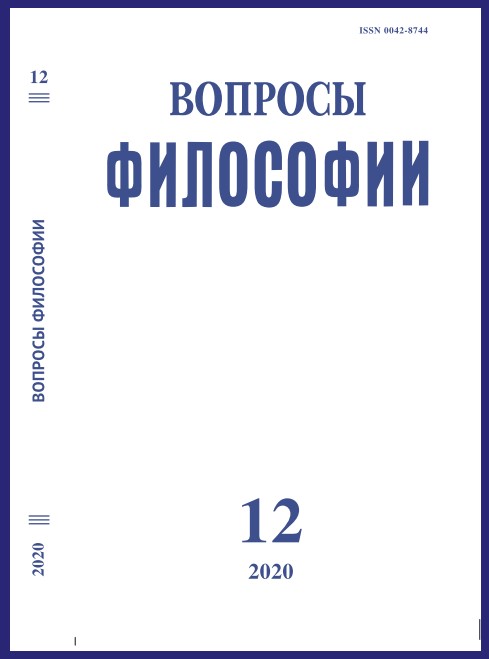Международный философский конгресс как «самосознание философии»
DOI:
https://doi.org/10.21146/0042-8744-2020-12-16-19Ключевые слова:
философская пропедевтика, специфика философского знания, международный философский конгресс, сфера разговораАннотация
Автор статьи предлагает переосмыслить институциональный статус философии в контексте анализа международных философских конгрессов как коллективных форм выражения мысли. Коммуникационные площадки для философских диспутов (семинары, конференции, конгрессы, журналы и др.) во многом определяют содержание философского знания, поэтому невозможно однозначно ставить вопрос о «чистой» философии, свободной от сферы разговора (Т.Г. Щедрина), в которой философия и совершается как событие. Наука и философия как коммуникативные феномены требуют коллективных форм работы. Научные сообщества – это непременный атрибут существования науки, как и философия – это наличие философской школы, колледжа, лицея, академии. Даже если науки и философия делаются «в кабинете», то и кабинетный формат предполагает наличие коммуникационной площадки, сети общения разных авторов. В этом смысле любого рода конференции, конгрессы и круглые столы – при удачном стечении академических обстоятельств – становятся не просто продолжением философии, а ее непосредственной частью. На них не только и не столько презентуется «философский результат», сколько творится процесс философствования. Эту неоспоримую значимость международных конгрессов как коллективных форм философии и как ее самосознания зафиксировал известный русский логик Н.А. Васильев, когда размышлял об итогах Третьего международного философского конгресса.

